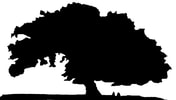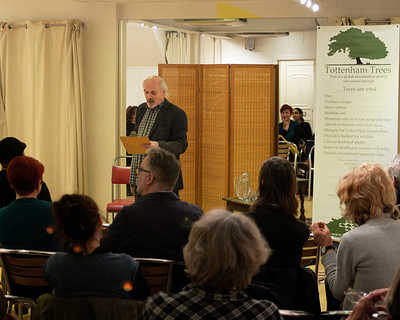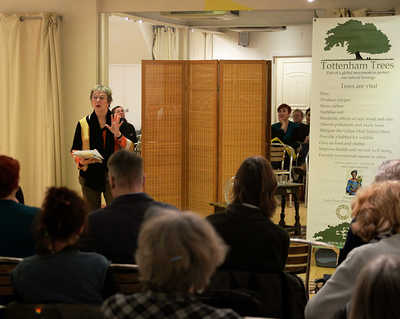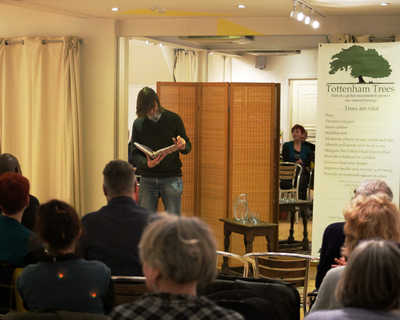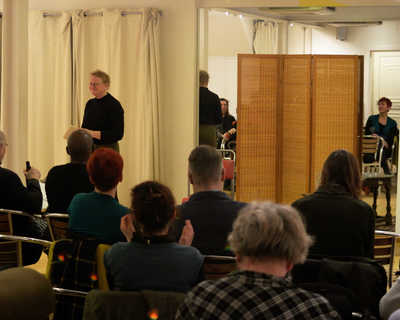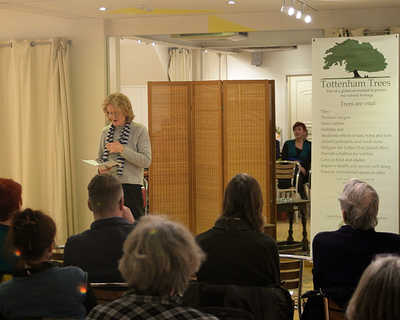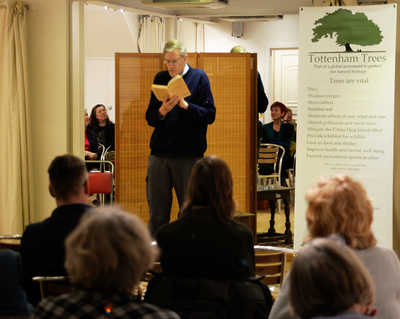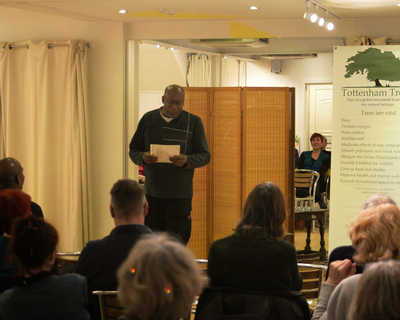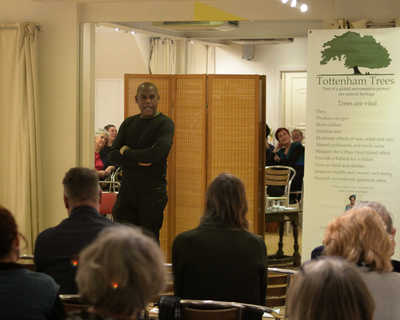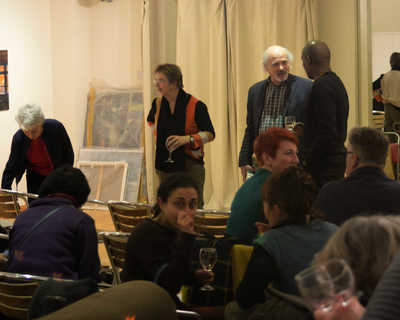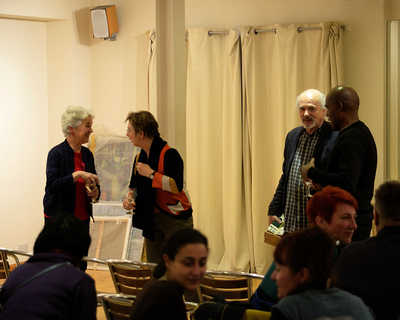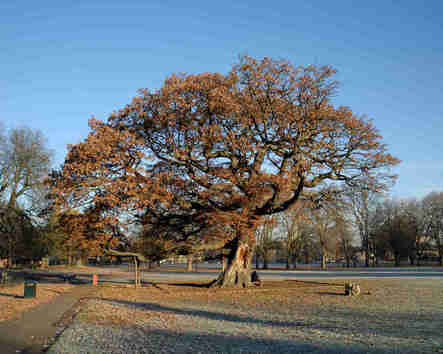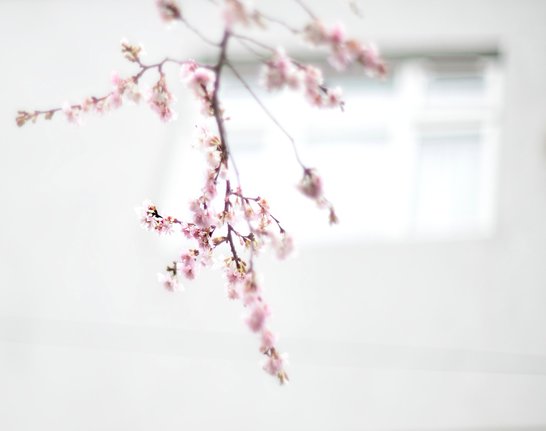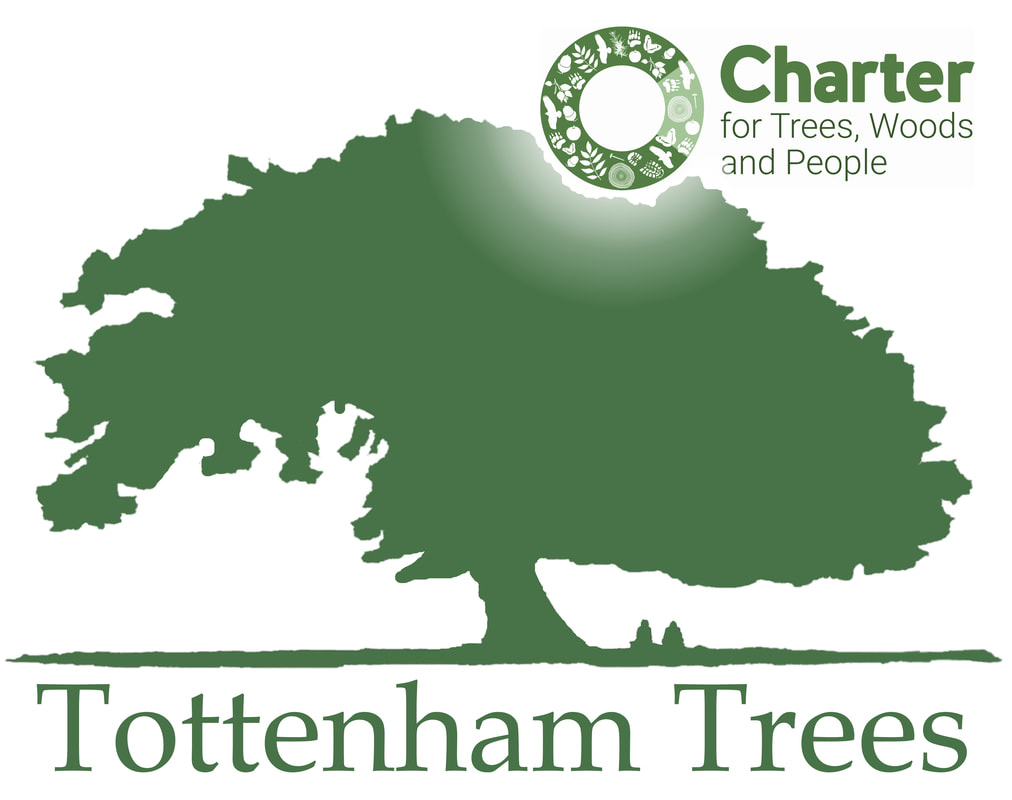|
Hilary Davies has published four collections of poetry from Enitharmon: The Shanghai Owner of the Bonsai Shop; In a Valley of This Restless Mind, Imperium, and Exile and the Kingdom, published in November 2016. Hilary won an Eric Gregory Award for Young Poets in 1983, has been a Hawthornden Fellow, Chairman of the Poetry Society, and 1st prizewinner in the Cheltenham Literature Festival poetry competition. For many years she was Head of Languages at St. Paul’s Girls’ School, London. She was a Royal Literary Fund Fellow at King’s College, London, 2012-6. She also reviews regularly in the literary press and her poetry blog for the Times Literary Supplement is featured on its online home page this week.
|
Anthony Howell is an award-winning poet, novelist, former dancer with the Royal Ballet, and performance artist who has worked in an impressive range of media.
He has published three collections of poems with Anvil Press, and his poems have appeared in numerous anthologies. He has read and performed widely at venues in Britain such as the South Bank, ICA and Goldsmiths, in Europe and America, and been a Senior Lecturer in the Faculty of Art, Design and Technology at the University of Wales Institute in Cardiff. Anthony runs The Room, in the heart of Tottenham, for the benefit of the Local Community. |
Abe Gibson is a London-born poet and storyteller. He was a member of the Brothaman Poetry Collective and has published a collection of poetry - Violently Tender.
He has been writer in residence at Feltham Young Offenders Institution and at schools in Tottenham and Hackney. Performing at Word for Word, he was spotted by a representative from the London Museum of Transport where he has been writer in residence. He has curated poetry at The Room. His welcoming style captures even the attention of those who think poetry is "not for me". |
Open mic contributions
Poems written and read by Elizabeth Adams
|
The Seven Colours of Trees
First, the timid yellow-green Of tiny leaves in blust’ry March. Then bright, each vying to be seen Against the ivy, laurel and larch. The proud beech, at Solstice time, Provides a canopy for the sun’s noon Above the myriad greens that shine; But ‘Summer’s lease’ will end too soon. Horsechestnuts: first to show their age By gold and red that slowly creep Across their leaves, while winds rage And force them to their compost sleep. Last, the purple-black December brings Of boughs where birds still sing. And only the sturdy oak still clings To its dead, brown leaves ‘til Spring! © Elizabeth Adams, February 2017 |
For Shakespeare 400
When ill-temper'd by the world out there; Sick of party politick and government; Lamenting gardens that once were fair, Now own'd by those on nought but profit bent; Finding myself too old for love-in-idleness Or dalliance along the primrose path; Age forces us to 'custom us to less, And aching joints keep us confin'd to hearth; When darling buds are torn by wanton boys And ale cups strewn around, 'spite our beseeching, When everywhere's o'er people'd, all is noise; And birds need try outdo the siren's screeching; Then happily go I to my little plot, Where the wild thyme grows - albeit in a pot. © Elizabeth Adams This year it’s the Cotswolds!
What was a holiday is now a vacation, But either way it's just as dear. "We're having what's called a staycation. The Maldives are so last year!" The simple life is having a boom, In treehouse, hayloft or horsebox, "Does it come with your very own groom?" "Do canals have staff to see to the locks?" There's glamping in yurts and churches for champing, Woodland and wilderness now de rigueur. Whatever happened to poor old camping? Move on! Or back to the way we were? Forget your iPad, unplug your phone. Forage for nettle and dandelion stew. Or try a craft you've never known. Go back to nature - then start anew! © Elizabeth Adams |
In collaboration with the Big Green Bookshop, Elizabeth has published a small volume of her poetry:
Signs of the Times: poems from 1996-2016 which is available from the Big Green Bookshop.
Baden Prince, visiting from South London, read his Tree Puzzle and Tree haiku
Signs of the Times: poems from 1996-2016 which is available from the Big Green Bookshop.
Baden Prince, visiting from South London, read his Tree Puzzle and Tree haiku
Well loved tree poems
|
The Trees by Philip Larkin
The trees are coming into leaf Like something almost being said; The recent buds relax and spread, Their greenness is a kind of grief. Is it that they are born again And we grow old? No, they die too, Their yearly trick of looking new Is written down in rings of grain. Yet still the unresting castles thresh In fullgrown thickness every May. Last year is dead, they seem to say, Begin afresh, afresh, afresh. Read by Bob Lindsay-Smith © by owner provided at no charge for educational purposes Everything Changes by Cicely Herbert after Brecht Everything changes. We plant trees for those born later but what's happened has happened and poisons poured into the seas cannot be drained out again. What's happened has happened poisons poured into the seas cannot be drained out again. But everything changes. We plant trees for those born later Read by Bob Lindsay-Smith A Shropshire Lad by AE Housman Loveliest of trees, the cherry now is hung with bloom along the bough, And stands about the woodland ride Wearing white for Eastertide. Now, of my three score years and ten, Twenty will not come again, And take from seventy springs a score, It only leaves me fifty more. And since to look at things in bloom Fifty springs are little room, About the woodlands I will go To see the cherry hung with snow. Read by Pam Harling The Housman Society |
Extract from ‘The Wild Places’ by Robert Macfarlane
The wind was rising, so I went to the wood. It lies south of the city, a mile from my home: a narrow, nameless fragment of beech-wood, topping a shallow hill. I walked there, following streets to the city’s fringe, and then field-edge paths through hedgerows of hawthorn and hazel. Rooks haggled in the air above the trees. The sky was a bright cold blue, fading to milk at its edges. From a quarter of a mile away, I could hear the noise of the wood in the wind; a soft marine roar. It was the immense compound noise of friction - of leaf fretting on leaf, and branch rubbing on branch. I entered the wood by the southern corner. Debris was beginning to drop from the moving canopy: twigs and beech nuts, pattering down on to the coppery layer of leaves. Sunlight fell in bright sprees to the floor. I walked up through the wood, and midway along its northern edge I came to my tree - a tall, grey-barked beech, whose branches flare out in such a way that it is easy to climb. I had climbed the tree many times before, and its marks were all familiar to me. Around the base of its trunk, its bark has sagged and wrinkled,so that it resembles the skin on an elephant’s leg. At about ten feet, a branch crooks sharply back on itself; above that, the letter ‘H’, scored with a knife into the trunk years before, has ballooned with the growth of the tree; higher still is the healed stump of a missing bough. Thirty feet up, near the summit of the beech, where the bark is smoother and silver, I reached what I had come to call the observatory: a forked lateral branch set just below a curve in the trunk. I had found that if I set my back against the trunk and put my feet on either tine of the fork, I could stay comfortable there. If I remained still for a few minutes, people out walking would sometimes pass underneath without noticing me. People don’t generally expect to see men sitting in trees. If I remained still for longer, the birds would return. Birds don’t generally expect to see men in trees, either. Blackbirds fussing in the leaf litter; wrens which whirred from twig to twig so quickly they seem to teleport; once a grey partridge, venturing anxiously from cover. I steadied myself in the observatory. My weight and movement had made the tree rock, and the wind exaggerated the rock, so that soon the summit of the beech was creaking back and forth, describing arcs of five or ten degrees. Not an observatory that day; more of a mast-top crow’s-nest in a sea swell. Read by Peter Corley with thanks to the author |
Music played on the night
|
Instrumentals:
Ishq, Cedar Song from the album Spring Light Clifford Brown It might as well be Spring |
Listed in order with links (and lyrics below):
Sycamore Trees Jimmy Scott Trees Paul Robeson Autumn Leaves Eva Cassidy |
|
Sycamore Trees Singer: Jimmy Scott, David Lynch (lyrics), Angelo Badalamenti (music) I got idea man You take me for a walk Under the sycamore trees The dark trees that blow baby In the dark trees that blow And I'll see you And you'll see me And I'll see you in the branches that blow In the breeze, I'll see you in the trees Under the sycamore trees Trees
Singer: Paul Robeson, Joyce Kilmer (lyrics), Oscar Rasbach (music) I think that I shall never see A poem lovely as a tree A tree whose hungry mouth is prest Against the earth's sweet flowing breast; A tree that looks at God all day, And lifts her leafy arms to pray; A tree that may in summer wear A nest of robins in her hair; Upon whose bosom snow has lain; Who intimately lives with rain Poems are made by fools like me, But only God can make a tree. |
Autumn leaves Singer: Eva Cassidy, Jacques Prévert (lyrics), Joseph Kosma (music) The falling leaves Drift by my window. The falling leaves of red and gold. I see your lips, the summer kisses, the sunburned hands I used to hold. Since you went away the days grow long And soon I'll hear old winter’s song But I miss you most of all my darling When autumn leaves start to fall Since you went away the days grow long And soon I'll hear old winter’s song But I miss you most of all my darling When autumn leaves start to fall I miss you most of all my darling When autumn leaves start to fall. |
